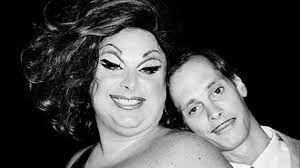
c/o The Arts Desk
John Waters’ films took him from the dive bars of Baltimore to Broadway and Hollywood. Well, in a sense, considering that he continues to live in Baltimore, except when summering in the gay capital of America: Provincetown, MA. One could say his films were groundbreaking in that they were explicitly queer films made in the 1970s, starring drag queen Divine, his childhood friend, but they are so much more than that. Waters didn’t just break every rule of Western society in his films; he twisted and trivialized said rules. At the Center for Film Studies’ showing of Waters’ film “Hairspray” (yes, the precursor to the musical you know and love), Academy Museum of Motion Pictures Archivists Jenny He ’02 and Dara Jaffe ’09 held a Q&A and touched on this specific point.
“Whatever two ways you think something can be done, John Waters finds a secret third way,” Jaffe said.
Jaffe also mentioned how all normative portrayals in Waters’ films are twisted. For example, “Polyester” centers around a heteronormative family, yet the mother is played by Divine. Associate Professor of the Practice in Film Studies Mark Longenecker stressed that Waters’ films portray a mindset in which the norm is completely irrelevant, and what’s left is irreverent fun.
“It’s anarchy, it’s uninhibited, it’s freedom of expression, and it’s comedy above all those things,” Longenecker said. “Sometimes it’s for the sake of being sacrilegious or surprising or shocking, but other times it’s genuinely a sort of warmth and community in a shared liberation from taste and propriety.”
Waters’ cast and crew often consisted of friends from Baltimore, including Divine, which contributes to the sense of warmth and community found in his films. The “Trash Trilogy,” some of Waters’ best films, were made by a ragtag crew of Baltimore locals and Waters’ friends in the 1970s without any help from a production company. Waters proves that, even for movies of an irreverent and lewd nature, it is the integrity of the filmmaking that matters, and it is through that integrity that he makes such impressive films on such a low budget.
“As an independent filmmaker, he’s an inspiration to people who just want to make movies,” Longenecker said.
To all you Wesleyan filmmakers, lost in the towering dream of being the next Kubrick or Tarantino, Waters should really be the first place you look for inspiration (that is, only if you can stomach some genuinely vile sex scenes; I recommend not starting with “Pink Flamingos,” no matter how badly you want to say you’ve seen the cult classic). Yet, though the grotesqueness often feels excessive, it is not at all gratuitous. Waters is very specific in his approach, and every choice serves to build his specific style and his film universe—his “Dreamland,” which is the name of his production company.
“He’s trying to provoke a reaction from you, and maybe encourage you to interrogate your own reaction,” Longenecker said. “He’s in some ways asking you to ask yourself if you’re hung up on something and what you’re actually hung up on…. He enjoys rejecting propriety. He enjoys rejecting the rules that a certain portion of society has agreed on as proper behavior and to say that disobeying those rules with reckless abandon is equally real, authentic and meaningful.”
Waters makes you laugh at things that in any other context you would utterly condemn (incest, murder, and much, much worse), as well as fall in love with characters that would terrify and happily harm you if you came across them in real life.
Hopefully by now, you filmmakers and un-creatives alike are itching to know more about John Waters. Luckily, we have his entire collection—his old script drafts, fan mail, posters, and more—in the Wesleyan film archives (among collections from the likes of Frank Capra and Clint Eastwood). The way that Waters granted Emerita Corwin-Fuller Professor of Film Studies Jeanine Basinger, founder of the University’s Film Department, the collection is especially Waters-esque.
“[Jeanine] just kind of cold-called him at his home in Baltimore and said, ‘Hi, Mr. Waters, I’m Jeanine Basinger. I’m with the University. We’ve got the cinema archives, Frank Capra’s in it, Clint Eastwood’s in it. Would you be willing to donate your collection to the archives?’” Longnecker said. “And he said, ‘Is this a joke?’ And then, eventually, I guess he said yes.”
Although He and Jeffe are preparing part of the collection for an exhibition in Los Angeles, some of it is on display in the Center for Film Studies under the title “John Waters: A Legacy of Shock.” The University is truly lucky to have such a collection, and you shouldn’t miss the opportunity to go see it. It even includes a somewhat crazed letter written by a legendary former Saturday Night Live cast member at age 15, but I won’t spoil who.
Charlotte Seal can be reached at cseal@wesleyan.edu.